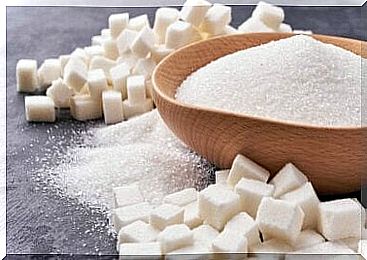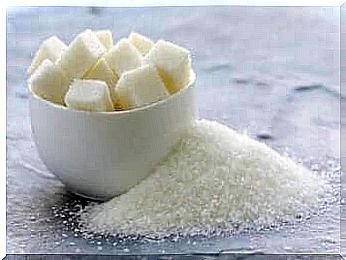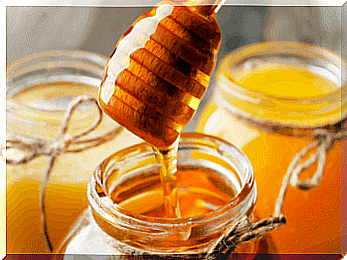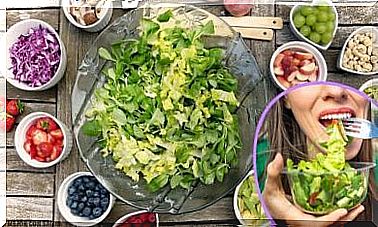Myths About Sugar
Sugar has become a hot topic in healthy eating. He has bitter opponents and defenders. Who is right ? We detail it here.

There have always been myths in nutrition. And the sugar is no exception. White sugar has an important weight in the diet. It is found in table sugar that we use to sweeten other foods and, moreover, it is present in countless processed foods, even the most unsuspected.
Recently, voices have been raised to denounce its negative effects, and it has even been called poison. But there are also those who defend moderate consumption. Who is right ? Let’s explore some of the myths about sugar together.
The body needs sugar: this is one of the most common myths

It is certainly one of the most important myths about sugar. It is true that the body needs glucose to function. It is the main fuel of our cells and they get the energy they need from it. The brain, the main organ that demands glucose, also needs a constant supply to function.
The problem is, we are confusing glucose with sugar. The energy substrate that cells need to function is glucose, not sugar. Glucose, although many are unaware of it, is present in many commonly eaten foods: fruits, tubers, legumes, among others.
In addition, the body is ready to obtain glucose when it is not supplied with food. It can tap into stores of glucose (which we store as glycogen in muscles and liver) or it can convert other nutrients into glucose. Therefore, sugar is not a necessary or essential food. This is one of the reasons that ketogenic diets have proven to be viable. The process by which fatty acids are converted into glucose is very efficient.
Up to 50 grams per day are acceptable
The first thing to clarify is that sugar is a food of low nutritional value, so it is not advisable to make recommendations for consumption. The latest guidelines from the World Health Organization regarding the consumption of free sugars state this:
Recently, this has even been reduced to less than 5%. Higher levels are linked to overweight and obesity in the general population, as experts say. In addition, in children, such consumption is linked to the appearance of dental problems such as decay.
Remember that free sugars are those that are added in food preparation, not those that are found naturally.
The important thing is to understand that with this statement it is not recommended to take up to 50 grams of sugar per day. Obviously, we can establish, in certain cases, an upper limit not to be exceeded. But the less added sugar, the better.
Sugar does not cause obesity

The link between sugar and the obesity epidemic isn’t just another sugar myth, it’s a fact supported by a lot of scientific evidence. The problem of obesity cannot be reduced to a question of energy balance.
It’s not just about eating less and spending more. It’s also not just a question of whether or not sugar is a high calorie food. The focus cannot be on calories alone, but on the type of food they come from.
Our bodies react differently depending on the type of carbohydrates we eat. Drinking a sugary drink is not the same as eating a plate of chickpeas. Although they ultimately provide us with the same calories, the physiological reactions that are triggered when we take in free sugars can promote the onset of obesity.
While it is true that sugar is not the only factor involved in obesity, an excess of sugar and processed foods in the diet is directly linked to obesity. It also increases the risk of obesity-related diseases, such as diabetes, high blood pressure, and certain types of cancer.
Taxing sugary drinks is not effective
In recent years, some countries, regions and cities have implemented different types of measures to reduce the consumption of sugary drinks. One of them is a specific tax on sugary drinks. Several reasons justify the introduction of these taxes:
- Reduce consumption of sugary drinks, with estimates of up to 20% reduction.
- Reduce public health costs related to health problems associated with high consumption of added sugar.
- Carry out health promotion campaigns among the population with part of the proceeds of this tax.
- Point out that regular consumption of sugary drinks and foods high in sugar is unhealthy.
The experiences of regions such as California or Catalonia, and countries such as France, Finland, Hungary, Chile or Mexico have been positive. The levels of purchase and consumption of these types of beverages have declined.
That is why taxes on sugary drinks are recommended by the World Health Organization as an effective tool to reduce sugar consumption and prevent the onset of certain non-communicable diseases.
Sugar myths: natural alternatives are healthier

As the bad reputation of table sugar has developed, other alternative foods have appeared to sweeten our dishes :
- Agave syrup
- Coconut sugar
- Brown sugar
- Honey
- Fructose
- Rapadura sugar
But… are they really healthier? Some of these foods have a lower glycemic index or provide small amounts of certain nutrients. But talking about these foods as healthy alternatives can make us fall into the error that they are harmless or beneficial to health.
And if we think they have benefits, or that they aren’t as bad as sugar, we run the risk of increasing their intake. They can be good options to stop consuming it, but the ideal is to accustom our palate to the natural sweetness of the food.
Pay attention to your sugar intake
While it seems risky to think of sugar as a poison, it is also true that it is not an essential food in the diet. The best advice we can give you is: the less you consume, the better off you will be.








